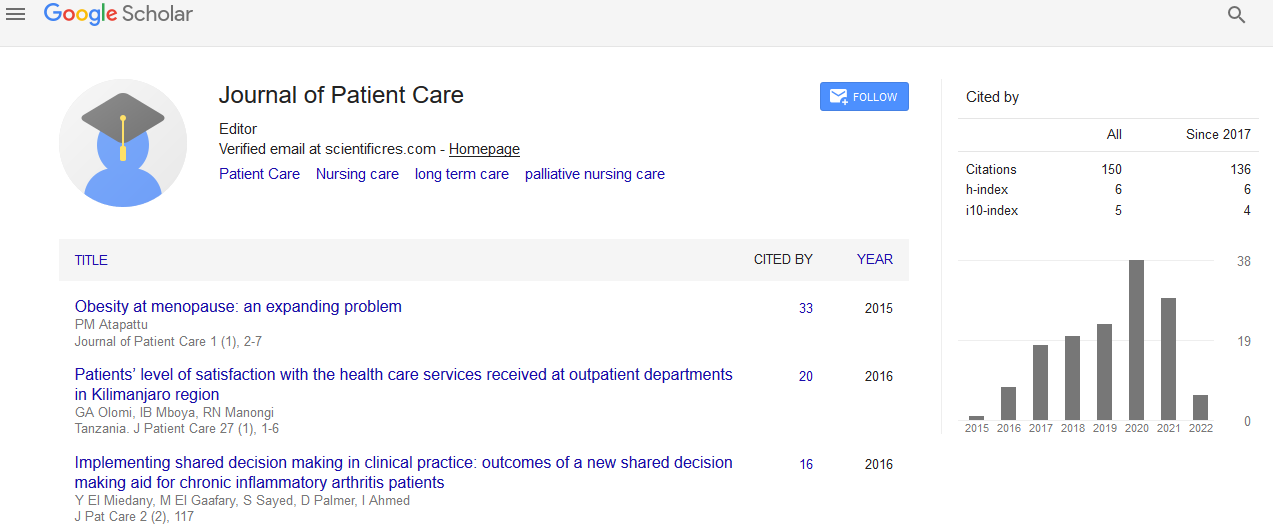Indexed In
- RefSeek
- Hamdard University
- EBSCO A-Z
- Publons
- Geneva Foundation for Medical Education and Research
- Euro Pub
- Google Scholar
Useful Links
Share This Page
Journal Flyer

Open Access Journals
- Agri and Aquaculture
- Biochemistry
- Bioinformatics & Systems Biology
- Business & Management
- Chemistry
- Clinical Sciences
- Engineering
- Food & Nutrition
- General Science
- Genetics & Molecular Biology
- Immunology & Microbiology
- Medical Sciences
- Neuroscience & Psychology
- Nursing & Health Care
- Pharmaceutical Sciences
Abstract
Effect of Parents
Mohammed A AlAgha, Wedyan M Majdi, Hasan M Aljefri, Mohamed Abdelfattah Ali, Abdulmoein E Alagha, Ihab Ahmad Abd-Elhameed and Douaa Ahmad El-Derwi
Background: Type 1 diabetes mellitus (T1DM) is a chronic metabolic disorder. Factors affecting glycemic control, including parental higher education and occupation are important aspects in the management of the disease.
Objective: To investigate the relationship between glycemic controls measured as glycosylated hemoglobin (HbA1c) with parental higher education and occupational status in children and adolescents with T1DM.
Methods: Clinical and laboratory characteristics of 243 T1DM children and adolescents aged between 1 and 18 years visiting pediatric diabetes clinic at King Abdulaziz University Hospital (KAUH), Jeddah, Saudi Arabia were all recorded. Parents of diabetic children were interviewed. Data about their higher educational level and occupational status was assessed. Metabolic control was assessed by measuring the mean of Glycosylated hemoglobin (HbA1c).
Results: Significant difference was noticed between fathers’ educational level and HbA1c (P=0.01); higher educated fathers were associated with HbA1c<7% (<53 mmol/mol), while poor glycemic control was recorded in low educated fathers. There was no difference between HbA1c and mothers’ educational level (p=0.756). Regarding parental occupation and child HbA1c, more professional fathers have better diabetic control on their sibling (p=0.007), while no difference on mothers’ occupation (P=0.46).
Conclusion: Fathers’ educational level and employment status had a positive relation with children metabolic control more than mothers’ education and employment status.

